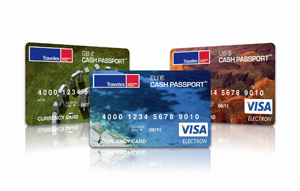Just occasionally, I’m asked to give advice to those at university, and those thinking about it. Invariably, the question is meant to prompt some safe financial advice but I usually reply with ‘Travel. Always travel.’
 Not taking a gap year either before or after university is something I particularly regret – now I’m obliged to turn up to an office each day, and to pay rent each month, it’s proving tricky to squeeze in a trip to some far flung corner of the world. I just haven’t found a weekend long enough…
Not taking a gap year either before or after university is something I particularly regret – now I’m obliged to turn up to an office each day, and to pay rent each month, it’s proving tricky to squeeze in a trip to some far flung corner of the world. I just haven’t found a weekend long enough…
The thing is, I was never sure I could afford it – but costs needn’t become burdensome. Just bear these tips in mind…
1. Get your finances in order ASAP
Planning a trip is fun – well, some of it. Money, of course, is deadly dull. It’s tempting to do finances in a mad panic at the airport bureau. Don’t. There may be zero commission but the rate will be so poor it more than makes up for it. Have your budget sorted a few weeks prior to take-off, so there’s plenty of time to compare rates and choose what works for you.

2. Be sensible – but have some spare
The Catch-22 of travel money is this: too little and you’ll spend your entire trip staring forlornly at things you can’t buy, wishing you’d denied yourself a few pints before you left. Take too much, though, and you’ll come back with spare. That’s fine for a usual holiday, but if you’re headed off somewhere unusual (and let’s face it, you should be for a Gap Year), the currency may be for that place only and you’ll be treated to a dreadful re-exchange rate to get back to sterling.

3. Think plastic – but not debit or credit
A gap year shouldn’t be about a few weeks in Spain. Even Thailand is a little predictable. Try somewhere exciting – but remember some of the smaller countries may leave you at more of a risk of fraud. This means your debit and credit card may not be the best choice. Besides, withdrawing money on your debit card will typically incur a charge of 2-4% of the transaction total and then a currency exchange rate of around 3%. It’s a pricey way to do it.
Instead, try a prepaid currency card – the best don’t have these charges and are safer than a credit/debit card as there is less risk of identity theft and your bank account is not vulnerable. If your card is stolen, a simple phone call or even a text will block the card and a replacement can be sent immediately. Both TravelEx and VidaFx offer excellent exchange rates and very few charges.

4. Don’t be ashamed to barter
Bartering – it’s not very English, is it? Try it in Fortnum & Mason and they’re liable to call security (…please don’t ask how I know…), but in some of the more exotic corners of the world, it’s expected, and practically encouraged. Bartering isn’t about being aggressive: the skill lies in charm. The general rule of thumb is that the ‘tourist’ price is probably a third of what the asking price is. Don’t forget that it isn’t just market stall traders who barter – try it at your hotel, booking up a tour, hiring a camel etc.

Most of all – remember to enjoy. A gap year is a rare chance to explore – so take advantage. University is a magnificent adventure in itself, but in the long run, it’ll be well worth it to spend a little more on your gap year and a little less on your fresher’s week.
Blog by David Ellis of Student Money Saver
 ENTER
ENTER